|
Books Should Be Free Loyal Books Free Public Domain Audiobooks & eBook Downloads |
|
|
Books Should Be Free Loyal Books Free Public Domain Audiobooks & eBook Downloads |
|
Poetry |
|---|
Book type:
Sort by:
View by:
|
By: William Shakespeare (1564-1616) | |
|---|---|
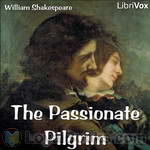 The Passionate Pilgrim
The Passionate Pilgrim
The Passionate Pilgrim was published by William Jaggard, later the publisher of Shakespeare’s First Folio. The first edition survives only in a single fragmentary copy; its date cannot be fixed with certainty since its title page is missing, though many scholars judge it likely to be from 1599, the year the second edition appeared with the attribution to Shakespeare. This version of The Passionate Pilgrim, contains 15 romantic sonnets and short poems. The works contained, while disputed as to authorship are in this writer’s most humble opinion, among the best of the age. | |
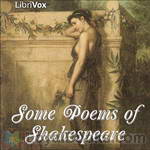 Some Poems of Shakespeare
Some Poems of Shakespeare
A selection of Shakespeare’s poems from The Oxford Book of English Verse: 1250–1900. | |
 A Lover's Complaint
A Lover's Complaint
| |
 The Shakespearian Sonnets
The Shakespearian Sonnets
| |
 The Phoenix and the Turtle
The Phoenix and the Turtle
| |
 Sonnets on Sundry Notes of Music
Sonnets on Sundry Notes of Music
| |
 The Rape of Lucrece
The Rape of Lucrece
| |
 The Passionate Pilgrim
The Passionate Pilgrim
| |
 A Lover's Complaint
A Lover's Complaint
| |
By: Thomas Babington Macaulay | |
|---|---|
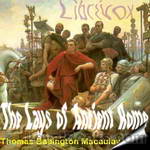 The Lays of Ancient Rome
The Lays of Ancient Rome
The Lays of Ancient Rome comprise four narrative poems comprised by Lord Thomas Babington Macaulay: recalling popular episodes from Roman historical-legends that were strongly moral in tone: exemplifying Roman virtue against Latine perfidy.The four poems are:- Horatius - Horatius and two companions seek to hold back a large invading Etruscan force at the far end of a bridge over the Tiber River. The trio are willing to lay down their lives so as to prevent the Etruscans crossing and sacking the otherwise ill-defended Rome: it is a desperate gamble to buy enough time for the Romans to destroy the bridge in advance of the hostile army... | |
By: Robert Louis Stevenson (1850-1894) | |
|---|---|
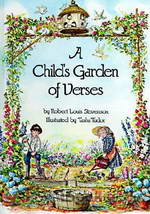 A Child's Garden of Verses
A Child's Garden of Verses
Beloved by many generations of children, A Child’s Garden of Verses is a beautiful collection of children’s poetry. Sometimes thoughtful, sometimes whimsical, but always fun. | |
 Ballads
Ballads
| |
 Not Yet my Soul
Not Yet my Soul
15 recordings of Not Yet my Soul by Robert Louis Stevenson. This was the Fortnightly Poetry project for May 19, 2013.Robert Louis Balfour Stevenson (13 November 1850 – 3 December 1894) was a Scottish novelist, poet, essayist, and travel writer. His most famous works are Treasure Island, Kidnapped, and Strange Case of Dr Jekyll and Mr Hyde.The following poem comes from his collection entitled Underwoods, first published in 1887. | |
 New Poems
New Poems
| |
 Moral Emblems
Moral Emblems
| |
By: Thomas Hardy (1840-1928) | |
|---|---|
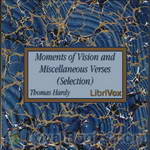 Moments of Vision
Moments of Vision
Hardy claimed poetry as his first love, and published collections until his death in 1928. Although not as well received by his contemporaries as his novels, Hardy’s poetry has been applauded considerably in recent years. Most of his poems deal with themes of disappointment in love and life, and mankind’s long struggle against indifference to human suffering. | |
 Wessex Poems
Wessex Poems
A collection of poetry by Thomas Hardy, some of which were previously published or adapted into his prose works. | |
 Late Lyrics and Earlier
Late Lyrics and Earlier
| |
 Time's Laughingstocks
Time's Laughingstocks
| |
By: Homer | |
|---|---|
 The Odyssey
The Odyssey
A wandering king who's a war-hero doomed to roam the earth by a vengeful God, a plethora of fantastic experiences, a wife battling the invasion of suitors who wish to replace her missing husband, a son in search of his father - the Odyssey is a rich tapestry of incredible experiences and unforgettable characters. A must-read classic for anyone who wants to understand the fundamentals of Western mythology, it is a sequel to the Illiad which recounts the magnificent saga of the Trojan War. The Odyssey continues on, describing the trials and tribulations of the Greeks under the leadership of Odysseus... | |
By: Rudyard Kipling (1865-1936) | |
|---|---|
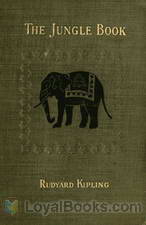 The Jungle Book
The Jungle Book
Originally written for his young daughter Josephine, who died tragically aged six, The Jungle Book by Rudyard Kipling is a collection of short stories which were published separately in magazines before being compiled into a book. The stories are in the form of fables, where animals communicate and speak to each other as humans do and the purpose of each story was to convey a moral or message to the reader. Modern readers would be more familiar with the Disney animated version in which Mowgli the little “man-cub” is raised by wolves... | |
 The Works of Rudyard Kipling
The Works of Rudyard Kipling
| |
 Kipling Reader
Kipling Reader
These are selections of Kipling's writings; some poems, some fiction, some history but all by the master storyteller himself. Rikki-Tikki-Tavi' -- William the Conqueror, Part I -- William the Conqueror, Part II -- Wee Willie Winkie -- A matter of fact -- Mowgli's brothers -- The lost legion -- Namgay Doola -- A germ-destroyer -- 'Tiger! Tiger!' -- Tods' amendment -- The story of Muhammad Din -- The finances of the gods -- Moti Guj, Mutineer. | |
 Departmental Ditties and Barrack Room Ballads
Departmental Ditties and Barrack Room Ballads
| |
 The Years Between
The Years Between
| |
By: Oscar Wilde (1854-1900) | |
|---|---|
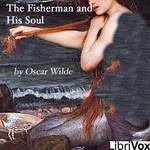 The Fisherman and His Soul
The Fisherman and His Soul
”The Fisherman and his Soul” is a fairy tale first published in November of 1891 in Wilde’s “A House of Pomegranates”. It tells of a fisherman who nets and falls in love with a mermaid. But to be with her he must shed his soul, which goes off to have adventures of its own. Will forbidden love endure? | |
By: G. K. Chesterton (1874-1936) | |
|---|---|
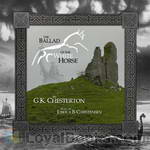 The Ballad of the White Horse
The Ballad of the White Horse
An English epic poem that follows the exploits of Alfred the Great in his defense of Christian civilization in England from the heathen nihilism of the North. Following a string of defeats at the hands of the invading Danes, a vision from heaven in the river island of Athelney fills Alfred with joy and hope. Though it gives no promise of victory in the coming struggle, it inspires him to rally his chieftains for a last stand against the invading hordes. His adventures lead throughout the country... | |
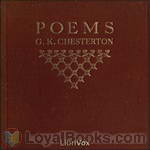 Poems
Poems
Originally published in 1916, this book of poetry by G.K. Chesterton includes 59 poems on a variety of subjects. Included in this are war poems, love poems, religious poems, ballades and more. | |
By: Louisa May Alcott (1832-1888) | |
|---|---|
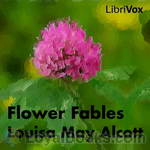 Flower Fables
Flower Fables
Flower Fables is Louisa May Alcott’s first book, penned at 16 for Ralph Waldo Emerson’s daughter, Ellen. | |
 Three Unpublished Poems
Three Unpublished Poems
| |
By: Edith Wharton (1862-1937) | |
|---|---|
 Artemis to Actaeon, and Other Verses
Artemis to Actaeon, and Other Verses
| |
By: Edgar Allan Poe (1809-1849) | |
|---|---|
 The Raven
The Raven
When a modern film script draws inspiration from a poem written more than a century ago, readers can judge its impact on our collective imagination. Such is the resonance of the poem "The Raven" by Edgar Allan Poe. First published in 1845, "The Raven" is a masterpiece of atmosphere, rhythmic quality and use of language. Constructed in narrative form, it tells the story of a young man who is mourning the loss of his beloved. One December night as he wearily sits up browsing through a classical volume, a mysterious tapping against his window disturbs him... | |
 Collection of Edgar Allan Poe
Collection of Edgar Allan Poe
| |
By: James Joyce (1882-1941) | |
|---|---|
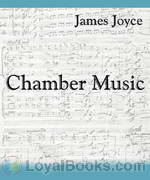 Chamber Music
Chamber Music
Chamber Music is a collection of poems by James Joyce, first published in May of 1907. The collection originally comprised thirty-four love poems, but two further poems were added before publication (”All day I hear the noise of waters” and “I hear an army charging upon the land”). Although the poems did not sell well, they received some critical acclaim. Ezra Pound admired the “delicate temperament” of these early poems, while Yeats described “I hear an army charging upon the land” as “a technical and emotional masterpiece”... | |
By: George MacDonald (1824-1905) | |
|---|---|
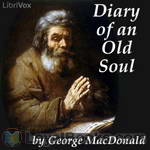 Diary of an Old Soul
Diary of an Old Soul
George MacDonald, a Scottish pastor, wrote these short poems, one for each day of the year, to help him with the severer misfortune he was experiencing. The poems are filled with hope and promises of Christ, yet, he also writes about his doubts. These poems are wonderful to listen to for people of any religion. | |
By: Friedrich Nietzsche | |
|---|---|
 The Joyful Wisdom
The Joyful Wisdom
The Joyful Wisdom (later translated as The Gay Science), written in 1882, just before Zarathustra, is rightly judged to be one of Nietzsche’s best books. Here the essentially grave and masculine face of the poet-philosopher is seen to light up and suddenly break into a delightful smile. The warmth and kindness that beam from his features will astonish those hasty psychologists who have never divined that behind the destroyer is the creator, and behind the blasphemer the lover of life. In the retrospective... | |
By: Jean de La Fontaine (1621-1695) | |
|---|---|
 Fables in Rhyme for Little Folks
Fables in Rhyme for Little Folks
Several of La Fontaine’s fables, translated into English by W. T. Larned. | |
 Old Man and the Ass
Old Man and the Ass
LibriVox volunteers bring you 8 recordings of The Old Man and the Ass by Jean de La Fontaine. (There was no translator acknowledged in the text.) This was the Weekly Poetry project for July 7, 2013.Jean de La Fontaine was the most famous French fabulist and one of the most widely read French poets of the 17th century. He is known above all for his Fables, which provided a model for subsequent fabulists across Europe and numerous alternative versions in France, and in French regional languages.According to Flaubert, he was the only French poet to understand and master the texture of the French language before Hugo... | |
By: Walt Whitman (1819-1892) | |
|---|---|
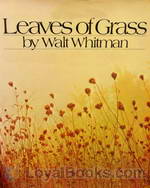 Leaves of Grass
Leaves of Grass
Nearly 160 years after it was first published, Walt Whitman's Leaves of Grass continues to inspire, enthrall and educate generations of readers. This collection of poems serves as a vehicle for Whitman's philosophy, ideals, love of nature and mystical musings and it subsequently became one of the corner stones of American literature. Whitman was inspired to write Leaves of Grass based on Ralph Waldo Emerson's clarion call for a truly American poet who would tell of its glories, virtues and vices... | |
 Specimen Days
Specimen Days
Specimen Days is essentially the great American poet Walt Whitman’s scrap book. It documents most of his life’s adventures, espeically his experience serving as a nurse during the Civil War and travelling around America. | |
 Song of the Broad-Axe - stanza 4
Song of the Broad-Axe - stanza 4
This Weekly Poem is an excerpt from Song of the Broad-axe (4th Stanza) by Walt Whitman, who was an American poet, essayist and journalist. A humanist, he was a part of the transition between transcendentalism and realism, incorporating both views in his works. Whitman is among the most influential poets in the American canon, often called the father of free verse. | |
By: Edith Nesbit (1858-1924) | |
|---|---|
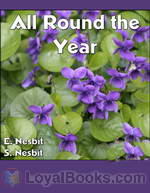 All Round the Year
All Round the Year
A light and whimsical collection of poems by the celebrated children’s author E Nesbit, in collaboration with Saretta Nesbit. | |
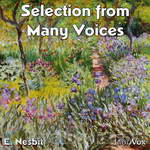 Many Voices (selection from)
Many Voices (selection from)
E. Nesbit (Edith Bland) was a prodigious 19th century children’s writer who produced over 60 books of fiction for children. This book of poems has many elements which would appeal to children but there’s also some exploration of her feelings of love, lust and longing which your average 10 year old would find downright yucky. There are also moments of joy, moments of sugary sweetness and moments of sharp insight in this collection which contains views from many angles. Recurring themes of love, death, gardens and fairies give us a fine insight into the lively imagination of E. Nesbit. Summary by Jim Mowatt. | |
By: William Blake (1757-1827) | |
|---|---|
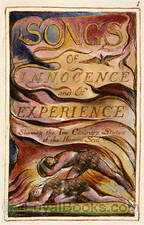 Songs of Innocence and Experience
Songs of Innocence and Experience
“Tiger, tiger, burning bright/In the forests of the night/ What immortal hand or eye/ Could frame thy fearful symmetry?” These often quoted lines are part of The Tiger in William Blake's Songs of Innocence and Experience. In 1789, William Blake released a limited edition of the book. Being a gifted artist, poet and printmaker, he undertook to personally publish all his work himself through a very painstaking but highly artistic process of etching, thereby transferring his drawings and poems individually onto copper plates by hand... | |
 Poems of William Blake
Poems of William Blake
Songs of Innocence and of Experience: Shewing the Two Contrary States of the Human Soul are two books of poetry by the English poet and painter, William Blake. Although Songs of Innocence was first published by itself in 1789, it is believed that Songs of Experience has always been published in conjunction with Innocence since its completion in 1794. Songs of Innocence mainly consists of poems describing the innocence and joy of the natural world, advocating free love and a closer relationship with God, and most famously including Blake’s poem The Lamb... | |
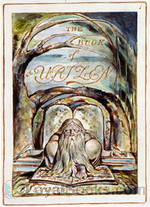 The First Book of Urizen
The First Book of Urizen
The Book of Urizen is one of the major prophetic books of the English poet William Blake, illustrated by Blake’s own plates. It was originally published as The First Book of Urizen in 1794. Later editions dropped the word “first”. The book takes its name from the character Urizen in Blake’s mythology, who represents alienated reason as the source of oppression. The book describes Urizen as the “primeaval priest”, and describes how he became separated from the other Eternals to create his own alienated and enslaving realm of religious dogma... | |
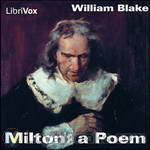 Milton: a Poem
Milton: a Poem
Milton: a Poem is an epic poem by William Blake, written and illustrated between 1804 and 1810. Its hero is John Milton, who returns from heaven and unites with Blake to explore the relationship between living writers and their predecessors. While on earth, Milton also unites with his feminine aspect, Ololon. The poem describes progress toward the apocalyptic union of living and dead, internal and external reality, and male and female. . | |
By: George Eliot (1819-1880) | |
|---|---|
 How Lisa Loved the King
How Lisa Loved the King
| |
By: Stephen Crane (1871-1900) | |
|---|---|
 War is Kind (collection)
War is Kind (collection)
Published in 1899, just a year before his death, War Is Kind by Stephen Crane evokes again the dark imagery of war which made his fortune in The Red Badge Of Courage. Unlike that book, this collection leaves the battlefield itself behind to explore the damage war does to people’s hearts and minds. Reeking of dashed hopes, simultaneously sympathetic with the victims of war and cynical about the purposes of war, Crane implicitly criticizes the image of the romantic hero and asks if Love can survive... | |
By: Plato (428-347) | |
|---|---|
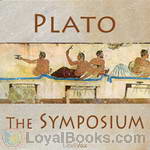 The Symposium
The Symposium
The Symposium (Ancient Greek: Συμπόσιον) is a philosophical book written by Plato sometime after 385 BCE. On one level the book deals with the genealogy, nature and purpose of love, on another level the book deals with the topic of knowledge, specifically how does one know what one knows. The topic of love is taken up in the form of a group of speeches, given by a group of men at a symposium or a wine drinking party at the house of the tragedian Agathon at Athens. Plato constructed the Symposium as a story within a story within a story... | |
By: James Baldwin (1841-1925) | |
|---|---|
 Six Centuries of English Poetry Tennyson to Chaucer
Six Centuries of English Poetry Tennyson to Chaucer
| |
By: Edmund Spenser (1552?-1599) | |
|---|---|
 Amoretti: A sonnet sequence
Amoretti: A sonnet sequence
The Amoretti (meaning little love poems) is a sequence of 89 sonnets written in the tradition of the Petrarchan sonnets, a popular form for poets of the Renaissance period. Spenser’s sequence has been largely neglected in modern times, while those of his contemporaries William Shakespeare and Sir Philip Sidney have been acclaimed. However, because of the artistic skill, along with the emotion and the humor exhibited, these poems deserve a broader hearing, even though they may be somewhat difficult for the present-day reader, partly through Spenser’s love for words and expressions that were already archaic in his time... | |
By: John Milton (1608-1674) | |
|---|---|
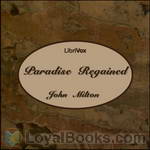 Paradise Regained
Paradise Regained
Paradise Regained is a poem by the 17th century English poet John Milton, published in 1671. It is connected by name to his earlier and more famous epic poem Paradise Lost, with which it shares similar theological themes. Based on the Gospel of Luke’s version of the Temptation of Christ, Paradise Regained is more thoughtful in writing style, and thrives upon the imagery of Jesus’ perfection in contrast to the shame of Satan. | |
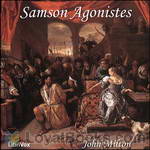 Samson Agonistes
Samson Agonistes
“The Sun to me is darkAnd silent as the Moon,When she deserts the nightHid in her vacant interlunar cave.”Milton composes his last extended work as a tragedy according to the classical Unities of Time, Place and Action. Nevertheless it “never was intended for the stage” and is here declaimed by a single reader.Samson the blinded captive, in company with the Chorus of friends and countrymen, receives his visitors on their varying missions and through them his violent story is vividly recalled... | |
 Milton's Comus
Milton's Comus
| |
 L'Allegro, Il Penseroso, Comus, and Lycidas
L'Allegro, Il Penseroso, Comus, and Lycidas
| |
By: Johann Wolfgang von Goethe (1749-1832) | |
|---|---|
 Faust — Part 1
Faust — Part 1
| |
 May Song
May Song
Johann Wolfgang von Goethe was a German writer and statesman. His body of work includes epic and lyric poetry written in a variety of metres and styles; prose and verse dramas; memoirs; an autobiography; literary and aesthetic criticism; treatises on botany, anatomy, and colour; and four novels. In addition, numerous literary and scientific fragments, more than 10,000 letters, and nearly 3,000 drawings by him are extant. | |
 Faust; a Tragedy, Translated from the German of Goethe
Faust; a Tragedy, Translated from the German of Goethe
| |
By: Emily Dickinson | |
|---|---|
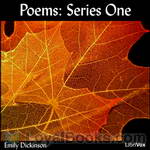 Poems: Series One
Poems: Series One
Renowned poet Emily Dickinson (1830 – 1886) wrote many many poems. This collection, “Poems: Series One”, presents the first installment of the complete poetic works of Miss Emily Dickinson. It is broken into four parts: Life, Love, Nature, and Time and Eternity. The verses of Emily Dickinson belong emphatically to what Emerson long since called “the Poetry of the Portfolio,”–something produced absolutely without the thought of publication, and solely by way of expression of the writer’s own mind. The poetry found here is then entirely honest, and indicative of the authors true feelings. | |
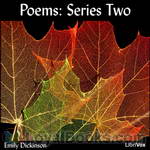 Poems: Series Two
Poems: Series Two
"The eagerness with which the first volume of Emily Dickinson's poems has been read shows very clearly that all our alleged modern artificiality does not prevent a prompt appreciation of the qualities of directness and simplicity in approaching the greatest themes,—life and love and death. That "irresistible needle-touch," as one of her best critics has called it, piercing at once the very core of a thought, has found a response as wide and sympathetic as it has been unexpected even to those who knew best her compelling power. This second volume, while open to the same criticism as to form with its predecessor, shows also the same shining beauties." | |
 Poems by Emily Dickinson, Third Series
Poems by Emily Dickinson, Third Series
| |
By: Andrew Lang (1844-1912) | |
|---|---|
 Ban and Arriere Ban
Ban and Arriere Ban
| |
 New Collected Rhymes
New Collected Rhymes
| |
By: R. F. Murray (1863-1894) | |
|---|---|
 Wasted Day
Wasted Day
Robert Fuller Murray was a Victorian poet. Although born in the United States, Murray lived most of his life in the United Kingdom, most notably in St Andrews, Scotland. He wrote two books of poetry and was published occasionally in periodicals. | |
By: Andrew Lang (1844-1912) | |
|---|---|
 Rhymes a la Mode
Rhymes a la Mode
| |
By: Robert Frost (1874-1963) | |
|---|---|
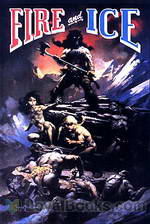 Fire and Ice
Fire and Ice
Written by one of the most significant American poets, Fire and Ice proficiently tackles the continuous query about how the world will cease to exist, whether it will go up in flames, or succumb to the cruelty of ice. First published in Harper’s Magazine in 1920 and later included in his acclaimed anthology New Hampshire, Frost effectively employs the use of simple, yet evocative language that assigns each syllable a significant purpose in the poem, while simultaneously concentrating on a perplexing topic... | |
By: Wilhelm Busch (1832-1908) | |
|---|---|
 Max and Maurice a juvenile history in seven tricks
Max and Maurice a juvenile history in seven tricks
| |
By: Margaret Sidney (1844-1924) | |
|---|---|
 Twilight Stories
Twilight Stories
| |
By: William Butler Yeats (1865-1939) | |
|---|---|
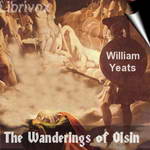 The Wanderings of Oisín
The Wanderings of Oisín
This narrative poem is composed in three parts, and consists of a dialogue between the aged Irish hero Oisín and St. Patrick. Oisín relates his three-hundred year sojourn in the immortal isles of Faerie. In the isles, Oisín married the beautiful Sidhe Niamh: together they traveled, feasted, and quested. At last Oisín succumbs to the temptation to return and visit the lands of mortal men: inadvertently slipping from his faerie horse, his body touches the ground and instantly puts on the flesh of a decrepit old man. Oisín describes various islands and what he did there: contrasting his noble deeds with the degenerate weakness of the present generation. | |
By: Henry Wadsworth Longfellow (1807-1882) | |
|---|---|
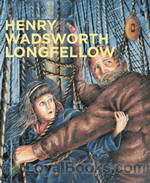 Henry Wadsworth Longfellow Collection Vol. 001
Henry Wadsworth Longfellow Collection Vol. 001
A collection to celebrate Henry Wadsworth Longfellow’s 200th birthday, on 27th February, 2007. | |
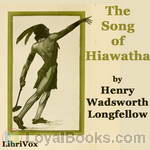 Hiawatha
Hiawatha
I sing the Song of Hiawatha,Brave of heart and strong of arm.Daughter’s son of old Nokomis,Fathered by the harsh West Wind. With its regular, beating rhythm, the Song of Hiawatha has often been parodied, but in truth, it is a powerful, emotional epic; a hero’s life, his loves and suffering. The legends and traditions of the North American Indian swirl together through the tale like a mountain stream, tumbling white over the rocks, and caressing the mossy tree roots. | |
 Evangeline
Evangeline
Evangeline is one of Longfellow’s most popular poems and was once a great favorite with the American people. For many years almost every school child studied this poem during the middle school years. Although the decline of the reputation of the once-idolized poet has also brought neglect to this classic, it is still a very touching and expertly written work of art. It is based upon the tragic expulsion of the French settlers from Acadia (located in the Canadian maritime provinces) during the French & Indian War (1754-1763)... | |
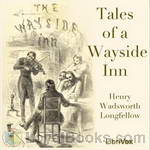 Tales of a Wayside Inn
Tales of a Wayside Inn
Mostly a collection of story-telling poems told by a group of friends in a tavern late one night. "Tales" includes the famous Paul Revere's ride, together with poems of many tales, countries and styles. | |
 The Song of Hiawatha An Epic Poem
The Song of Hiawatha An Epic Poem
| |
 The Children's Longfellow Told in Prose
The Children's Longfellow Told in Prose
| |
 Evangeline with Notes and Plan of Study
Evangeline with Notes and Plan of Study
| |
By: John Donne (1572-1631) | |
|---|---|
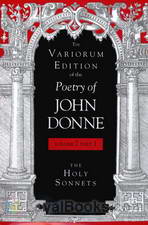 Holy Sonnets
Holy Sonnets
John Donne (1572 – March 31, 1631) was a Jacobean poet and preacher, representative of the metaphysical poets of the period. His works, notable for their realistic and sensual style, include sonnets, love poetry, religious poems, Latin translations, epigrams, elegies, songs, satires and sermons. His poetry is noted for its vibrancy of language and immediacy of metaphor, compared with that of his contemporaries. Towards the end of his life Donne wrote works that challenged death, and the fear that it inspired in many men, on the grounds of his belief that those who die are sent to Heaven to live eternally... | |
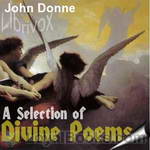 A Selection of Divine Poems
A Selection of Divine Poems
John Donne was an English Jacobean preacher, sometime lawyer, later in life a Member of Parliament and Royal Chaplain. Marrying for love against the wishes of his influential father-in-law; Donne's career was cast into shadow: forcing him to support his wife, Anne, as best he might under a specter of unforgiving penury. Despite such hardships - perhaps because of them - Donne's writings demonstrate a mastery of poetry layered with metaphysical meaning and mystery: which continues to delight and challenge modern-day readers... | |
By: William Makepeace Thackeray (1811-1863) | |
|---|---|
 Ballads
Ballads
| |
 The Loving Ballad of Lord Bateman
The Loving Ballad of Lord Bateman
| |
By: William Wordsworth (1770-1850) | |
|---|---|
 Lyrical Ballads (1798)
Lyrical Ballads (1798)
Lyrical Ballads, with a Few Other Poems is a collection of poems by William Wordsworth and Samuel Taylor Coleridge, first published in 1798 and generally considered to have marked the beginning of the English Romantic movement in literature. The immediate effect on critics was modest, but it became and remains a landmark, changing the course of English literature and poetry. Most of the poems in the 1798 edition were written by Wordsworth, with Coleridge contributing only four poems to the collection, including one of his most famous works, "The Rime of the Ancient Mariner"... | |
By: Samuel Taylor Coleridge (1772-1834) | |
|---|---|
 Answer to a Child's Question
Answer to a Child's Question
LibriVox volunteers bring you 21 recordings of Answer to a Child's Question by Samuel Taylor Coleridge. This was the Weekly Poetry project for October 6, 2013. | |
 Coleridge's Ancient Mariner and Select Poems
Coleridge's Ancient Mariner and Select Poems
| |
By: Ambrose Bierce (1842-1914) | |
|---|---|
 Interpretation
Interpretation
LibriVox volunteers bring you 8 recordings of An Interpretation by Ambrose Bierce. This was the Weekly Poetry project for September 22, 2013. | |
By: Vachel Lindsay (1879-1931) | |
|---|---|
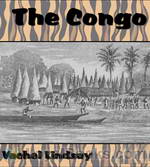 The Congo
The Congo
The Congo is one of the best-known poems by American poet Vachel Lindsay (1879-1931). It was revolutionary in its use of sounds and rhythms — as sounds and rhythms — and includes elaborate annotations to guide its spoken performance. Lindsay categorized The Congo as “higher Vaudeville” and was famous for his exuberant performances of it. The poem’s imagery is racist, but Lindsay was a product of his time — born 14 years after the end of the American Civil War in Abraham Lincoln’s hometown, he revered Lincoln and viewed himself as a friend and supporter of African-American culture. | |
 Chinese Nightingale and Other Poems
Chinese Nightingale and Other Poems
This is a collection of poems on various topics by Vachel Lindsay. Please note that the Booker T. Washington trilogy had to be omitted from this collection. | |
By: William Wordsworth (1770-1850) | |
|---|---|
 The Prelude
The Prelude
Among monuments of narrative poetry, The Prelude; or, Growth of a Poet's Mind, by William Wordsworth, occupies a unique place. Wordsworth published the first version of the poem in 1798, but continued to work on it for the rest of his life. The final version, which is the subject of this recording, was published posthumously in 1850, by Wordworth’s widow, Mary. The Prelude is the first major narrative poem in European literature which deals solely with the spiritual journey of the author. In this respect the only predecessor to which it can be compared in Dante’s Divine Comedy, which is similarly a journey from personal confusion to certitude, from ignorance to realization... | |
By: John Buchan (1875-1940) | |
|---|---|
 The Moon Endureth: Tales and Fancies
The Moon Endureth: Tales and Fancies
| |
By: Guy Wetmore Carryl | |
|---|---|
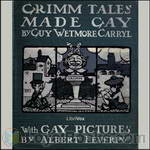 Grimm Tales Made Gay
Grimm Tales Made Gay
A comic rendering in verse of well-loved Fairy Tales of the Brothers Grimm, each ending with a moral and full of puns. The titles of the tales themselves make another verse. | |
By: Robert W. Service (1874-1958) | |
|---|---|
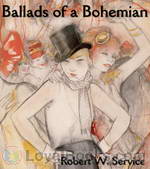 Ballads of a Bohemian
Ballads of a Bohemian
Ballads of a Bohemian is a collection of poems tied together by the narration of the “author” Stephen Poore. The poems speak of bohemian life in Paris before the war, his experiences during World War I and its aftermath. | |
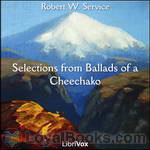 Selections from Ballads of a Cheechako
Selections from Ballads of a Cheechako
These twelve poems are from Ballads of a Cheechako which was Robert W. Service’s third book of Yukon poems, published in 1909. The word Cheechako, from Chinook Jargon, originated in the United States (Alaska) and Canada (Yukon) and was imported into local English during the Yukon gold rush that began in 1896. Cheechako, is a non derogatory word meaning “newcomer” or “tenderfoot.” The derivation looks something like this: chee new cha come ko home. | |
 Ottawa Folk Festival Robert Service Collection
Ottawa Folk Festival Robert Service Collection
The Spell of the Yukon by Robert Service with patrons, musicians and organizers. Robert Service is an iconic Canadian poet. | |
By: Susanna Moodie (1803-1885) | |
|---|---|
 Roughing It in the Bush
Roughing It in the Bush
'Roughing It In the Bush' is Susanna Moodie's account of how she coped with the harshness of life in the woods of Upper Canada, as an Englishwoman homesteading abroad. Her narrative was constructed partly as a response to the glowing falsehoods European land-agents were circulating about life in the New World. Her chronicle is frank and humorous, and was a popular sensation at the time of its publication in 1852. | |
By: Elizabeth Barrett Browning (1806-1861) | |
|---|---|
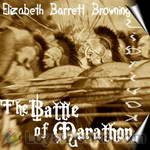 The Battle of Marathon
The Battle of Marathon
The Battle of Marathon is a rhymed, dramatic, narrative-poem by Elizabeth Barrett Browning. Written in 1820, it retells powerfully The Battle of Marathon: during which the Athenian state defeated the much larger invading force during the first Persian invasion of Greece. When Darius the Great orders his immense army march west to annex additional territories; no-one in the Persian court predicted that some fractious, independent Greek city-states stood any chance against the Persian super-power.... | |
By: Aeschylus (c. 525/524-456/455 BC) | |
|---|---|
 Prometheus Bound (Browning Translation)
Prometheus Bound (Browning Translation)
Whether or not it was actually written by Aeschylus, as is much disputed, "Prometheus Bound" is a powerful statement on behalf of free humanity in the face of what often seem like the impersonal, implacable Forces that rule the Universe. As one of the most compelling rebel manifestos ever composed, it has appealed not only to the expected host of scholars of Greek drama, but also to a fascinatingly free-spirited array of translators, especially since the early 19th century; Percy Bysshe Shelley, Henry David Thoreau, and activist-poet Augusta Webster are among those who have tried their poetic and linguistic powers at rendering it into English... | |
By: Elizabeth Barrett Browning (1806-1861) | |
|---|---|
 'He Giveth His Beloved Sleep'
'He Giveth His Beloved Sleep'
| |
By: Edna St. Vincent Millay (1892-1950) | |
|---|---|
 A Few Figs from Thistles
A Few Figs from Thistles
A collection of 23 poems by Edna St. Vincent Millay. | |
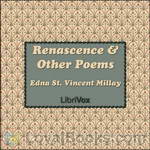 Renascence and Other Poems
Renascence and Other Poems
The following is a recording of the first volume of poetry published by Edna St. Vincent Millay. When the author had graduated from high school, she couldn’t afford to go to college. In the summer of 1912, Vincent’s sister, Norma, found work as a waitress at a hotel near where they lived. One night, Norma insisted that Vincent attend a masquerade ball, given at the hotel, if only to get Vincent out of the house and to meet people. Vincent finally gave in, and while there, sang songs and recited “Renascence,” the first poem in this collection... | |
 Second April
Second April
A collection of poems by Edna St. Vincent Millay. | |